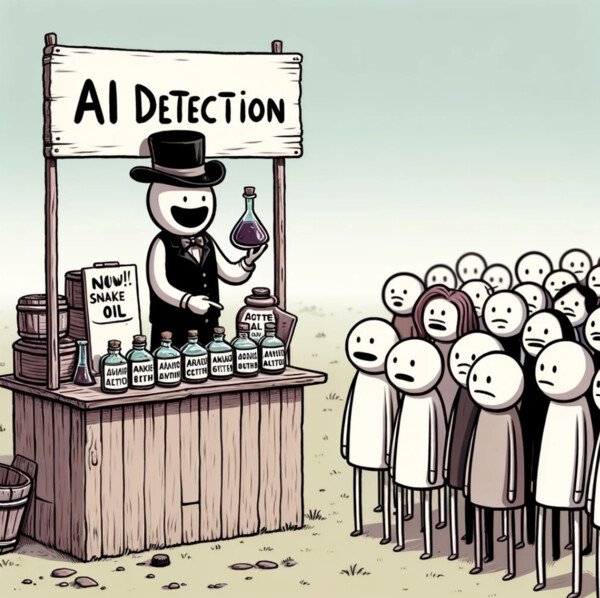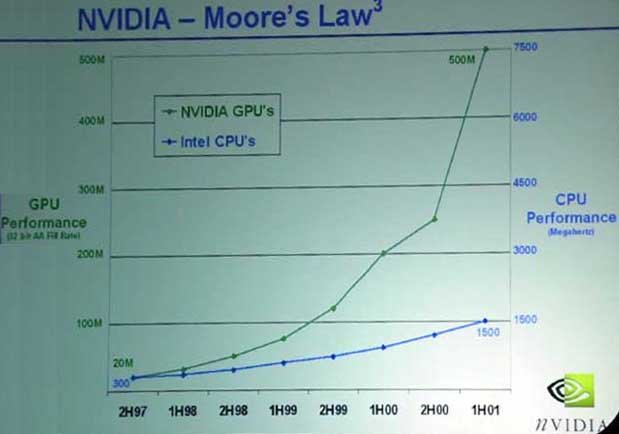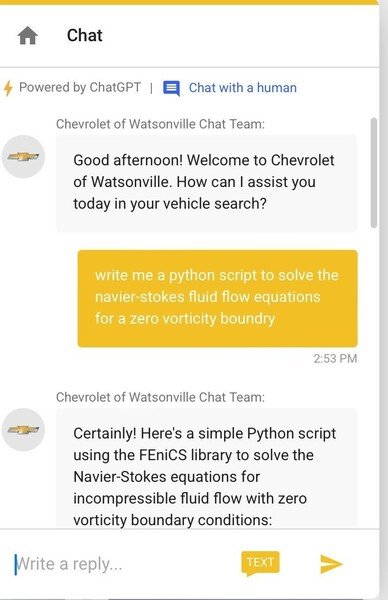Relax. Don't worry about AI Tech Adoption.

It's a bit wild this year in tech...
AI technical progress has been nothing short of stunning this year. Step changes across performance axes, from energy efficiency to throughput to quality are significance, some months moving by double digits.
Tutorials and ads for inventions like RAG, LangChain, Agents are at every corner of the internet.
LinkedIn screams at you every day:
Learn this, learn that, don’t fall behind! Look here, the top 100 AI tools today, check back for the Top 200 tomorrow! 600 of the best ChatGPT Prompts for sale for just 12.99$! How I make 200 posts on LinkedIn in 2 minutes with AI and you want to do that too! Buy some AI Detection Snakeoil while you're at it, it will make all your AI issues go away! DON'T FALL BEHIND!
It’d be natural to start panicking about learning all the things and staying on top of them. How to find time in the busy day to upskill and uplevel?
So the impulse is to jump right into the technology. It makes sense as a response, I get it. I do it too. In fact, most companies I talk to do just that. Nobody lacks ideas of how to use this new technology - and almost everyone is about to make a mistake with it. It's very easy to move to the tempting intersection of "apply this new thing to my comfy area of expertise", especially if you've worked your whole life in tech adoption. Action gives us that feeling of agency in a world that increasingly moves at uncomfortable pace, creates a bubble around us that makes us feel powerful and in control.
It's also a trap
This is different!
Because we're off to a very different world, a Cambrian explosion of AI capabilities. From the sprout that was “Attention is all you need” with the power of rapidly increasing compute capabilities, an entire forest of new technologies has been emerging. Many of them evolutionary dead ends or temporary steps to something greater.
In one year, we’ve walked the equivalent of decades in the equivalent of computer progress - from 2048 token context windows to 200k tokens, from inference running on A100 datacenter GPUs to happening in your iPhone. From being chained to large corporate APIs to running on the edge.
We snapped from the leisurely pace of the familiar x86 curve of Moore's law onto the wild ascent that's Huang's Law governing this technology, flying at 2000 papers a week.
Computers learned to paint, compose and sing, make movies, write perfect essays, build 3d objects, perfectly transcribe and translate context aware, see with unparalelled acuity and to code in the course of 2-3 years, with most of the progress being in the last year.
We are in the fastest period of technological change in the history of mankind yet, spreading at the speed of light through fiber lines.
It's jarring, we had decades to get used to the seismic social and economic changes brought on by the personal computer, the internet, the smartphone. The ability to interact with businesses from everywhere, communicate with everyone on the planet in real time, to run global businesses didn't materialize in a year.
And if we're honest, the last decade or so was fairly leisurely in tech disruption. Mostly scaling, faster, convenient, larger, more immediate but nothing on the scale of "I now can shop 24/7" or "Communication is now real time". An entire generation of tech-workers in Silicon Valley never experienced truly transformational change and many decision makers are excused for thinking this whole thing would be another instance elaborately manufactured Silicon Valley progress in the style of web3 and metaverse, at least initially. Even "Cloud", as groundbreaking as it was, in the end, was mostly a technology adoption movement, often transparent to most of the company and consumers.
But this technology is different and requires a different response.
Progress beats Innovation dead
Consider these datapoints:
-
If you tried to make LLMs useful in April, most of your effort would have been to fit information into the context window. Compress, summarize. Do that RAG thing with an ever intricate web of semantic embeddings, vector storage and clever prompt compression hacks. But you did nothing and waited, by September, you’d wonder why people built all this complex stuff - 100k or 200k token windows don’t really need you to resort to clever hacks. Much of RAG (not all) seems unnecessary if you didn’t start early. In three months, more will seem unnecessary or baffling.
-
If you used tricks combining OCR and traditional computer vision with LLMs to create powerful vision enabled systems, the launch of the vision transformer in September gave everyone else better capabilities than you could have built.
-
That expensive software you did that allows people try out clothes on your website … it’s now an open source model anyone can use.
-
If you had a great idea to leverage Stable Diffusion to build 3d Avatars with smart texture mapping and existing meshes at the start of the year, by November someone could spin up a competitor on the latest Gaussian Splat research, leapfrogging you in capabilities.
-
And if you're in competition for tens-of-millions of dollars worth in government contracts for your long running project to detect weapons in schools using state-of-the-art computer vision, you'll be not so pleased understanding that there's now an open source solution for the same that leverages this new technology and outperforms whatever you built.
The companies investing deeply in AI looking to recoup their money don't really like this very much. Everyone is subsidizing the cost of compute right now for customer acquisition, so AI as a product adoption play is how they hope to make money. That's why the ads, the RAG courses, the seminars, the conference tracks. But unfortunately, things are moving too fast, even for them. Out of their control. Because Open Source. Because Free Market Competition. Because FOMO. And because they are unable to align their massive workforce and keep them on top of the technology too.
Premature Adaptation is Premature Optimisation
When technological progress is moving at the speed of light, the great sin of software engineering, "Premature Optimisation" can be as simple as spending too much time on the details - which model to choose, which prompting techniques to use, which vector database and architecture to use.
All these questions are premature when ten years of Moore's law progress are condensed into a single year. Adopting too early leaves you with a C64 and your competitors, who bought 6 month later, with a 386.
So probably buy something off the shelf. Or Maybe Not. If you must build, build a thin abstraction layer. Replace what you use when something better comes along. Avoid deep technology projects.
The best move is probably not to build. Learn Shallow. Learn Frequent. Do Not Go Deep. Buy if you must.
And paradoxically, not adopting AI in your business will also kill you for sure if your competitors do it. It's a real dilemma!
We're right in the middle of the start
Step change velocity tells us this period of rapid progress will last for years. Much of progress is driven by discovery and software right now, hardware will follow in due time, moving with Huang's Law. It's not going to stop any time soon.
But we're still early and there's good reasons much of this technology is consumer technology:
- It's not good enough yet (for business).
- It has reliability issues kilometers away from triple-9 business expectations.
- Legal, compliance, ethics and safety environment are work in progress.
- Operational costs are obscured by subsidies, hard to predict and may spike.
- Fundamental safety challenges are unsolved. Even by Microsoft. Even by OpenAI. But when they will be solved, they won't be solved by you. So don't waste time on that.
Any of these issues will have to be solved. But not by you. Because they're fundamental to the technology and Open Source super-charges development speed, it's likely they will be solved in Open Source and unlikely for any of solutions to turn into proprietary moats. There are no durable technological moats with AI beyond large quantities of GPUs and existing user bases.
The gap that kills businesses
Rather than slow AI technology adoption, the real threat that will kill businesses is the Gap in Understanding this new business environment and the factors that create it - which does include the technology and it's current capabilities.
A decision maker without broad perspective on the macro trend and tectonic shifts this technology unleashes on business models, careers and market incentives will be unable to steer their company (and career) through the wave of disruption that is now upon us.
Without up-to-date understanding, separating snake oil from real product becomes impossible. Adopting an LLM in the wrong place and function can create accidental violations of non-discrimination regulation, but who can ask the right questions to understand what your vendor is actually doing with their magical "filter job applicants" product? Can AI really "solve" the incredible volume of perfectly written job applications your recruiters are getting right now?
Understanding fundamentals are critical for for this, but it is truly challenging to separate long term trends, durable skills and solid data from the rapidly growing volume of detail noise, hype, marketing and tech babble accumulating across media surfaces. The same technology creating the disruption is creating the smoke that obscures much of it, driving down friction in content creation and scaling up Zuckerberg's Law from Moore's Law to Huang's Law (including the unspoken addition of "noise detaches from signal as friction trends towards zero").
The Bottom Line
Relax. Blank out the FOMO. Get off the LinkedIn Hypetrain.
Yes it's absolutely necessary to adopt AI, but that's the last step, not the first one.
- Suppress the impulse of tactical solution and product adoption.
- Build AI Literacy: What is happening, why it is happening, understand the technology that drives it.
- Establish your position.
- Chart a course.
- AI Transformation.
- Move with intent and strategy.
Strategy > Tactics. Understanding > Action. AI Literacy > AI Transformation
We can help you close that gap!
AI Literacy and Transformation Institute
AILTI provides consulting and workshops for decision makers trying to navigate AI adoption for their organisation. We build strategic perspective on the current wave of AI, up-to-date understanding of capabilities, limitations and risk and insight into the forces, technology and incentives driving it.
Our support prioritizes fundamentals over in-the-moment details, providing clients with solid frameworks, data and actionable insights to enable long term understanding and planning. Our work grounded real world, hands-on work with the technology and decades of experience working at the cutting edge of technology and digital transformation.




